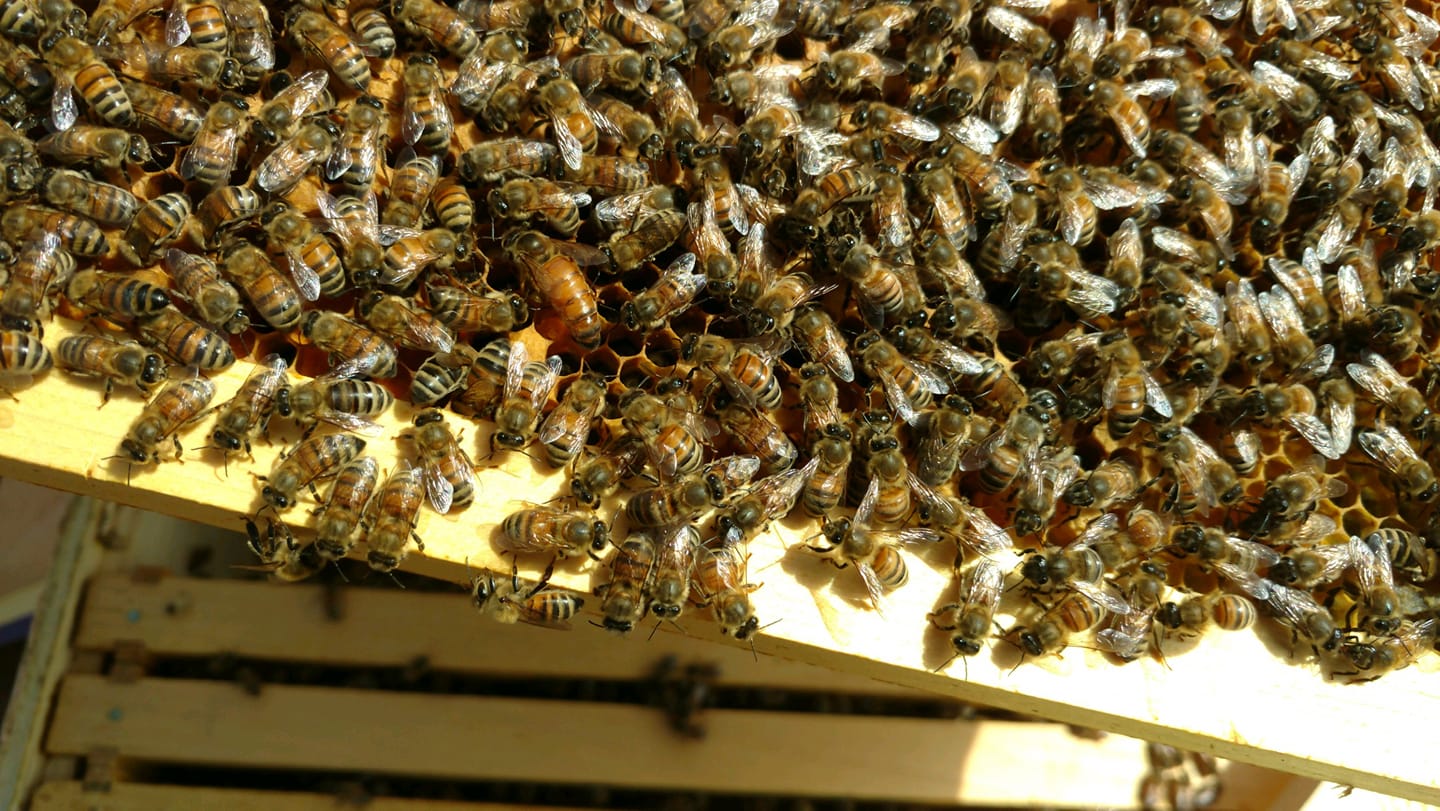There were 20 people in attendance. Marvin made a motion to approve the 2/4/25 meeting minutes as emailed out and posted on the website on 2/7/25. Randy second the motion. All were in favor. Sheila stated we have a $498 balance in the association’s fund. We have 18 paid members to date. The Transylvania County Beekeepers Association has been contacted by the local camp association to work with the camps in their education program. Please let Devin know if you are interested in working with the local camps to educate them about bees.
The speaker for the meeting was David Ellis. David is a former commercial beekeeper from Maine and relocated to our area. He has six decades of experience in beekeeping. We have a lot of floral sources for bees from March to September, unlike a lot of other places, such as Maine.
When starting to keep bees, you need to determine your goals. Most important goal is keeping your bees alive. Think about what you want out of your bees (nucs, queens, honey, pollination for farmers, etc.). Keep an annual calendar of what you need to do each month regarding your bees.
Around valentines day (weather permitting) you can do a quick first inspection just to determine if your hives are dead or alive. A quick peak in the box and/or by lifting the box to see how heavy it is. If they are dead, you will need to clean out the hive and disinfect it with a 5:1 part of water and bleach. Spray down the frames and let them dry in the sun. Wipe down the bottom boards and inside of the hive with the disinfectant. If you need to feed your hives in February, you want to use sugar, not syrup because it is still too cold.
The second inspection is in March, when the temperatures are above 60 degrees. Out of ten hives, you may have 25% weak, 50% perfect and 25% real strong. The real strong hives may result in a swarm. You want to make sure you keep the real strong hive flourishing. In November David usually puts some sugar and a winter patty in the hive. If they ate it all in February, then it is a strong hive. If not, it is a weak hive. You may want to think about requeening, or combining weak hives. In March you can start feeding syrup to hives that have a little honey supply at a 1:1 ratio. If there are no bees in the bottom hive, David takes it off and cleans it up, moving the top box down. He adds space, an extra box to the strong hives around mid March. Look for sealed brood in March. If there is a lot of brood, you will need to split the hive around the first part of April to prevent a swarm. David doesn’t reverse boxes if the bottom box is empty and the top is full, but some beekeepers do.
During the spring/late winter months, you need to work quick and efficiently when peeking inside your bees. Try not to disturb your bees too much. Make sure you have your smoker going good and equipment ready to go.
Bees out breed the mites this time of year. Around 60% of hives will have no mites if you test for them now because the mites are in the brood and will hatch out in May during the honey flow. Best time to treat your bees is now, before the honey flow. Otherwise, you will have to wait until after the honey flow sometime in June. David likes to use Oxalic acid or Apistan this time of year for mite treatment. When David goes into his hives he also likes to dust them with a little powdered sugar, chaga and reishi mushroom mixture to keep them healthy and hopefully keep down the mite count.
Watch the bees to see what they are bringing into the hive. If not bringing in any pollen, then there may not be a queen, or she is weak. If the bees are crawling on the ground and acting unusual, they may have a virus, mites, or have been affected by some chemical in the environment. Plant stuff your bees like to provide them food and energy.
David Ellis also raises queens. It is best to plan ahead for new queens. David sells queens and queen cells. Queen cells are 1/3 of the cost as a queen, but the queen is accepted better than the cell. In August you will need to start getting your bees ready for winter by feeding them, etc.
Hope to see everyone at our next bee meeting on tax day, April 15, 2025. You can arrive at 6:30 pm to share your bee news and hear about other bees. The meeting will start at 7 pm at the Community Services Building 106 E. Morgan St. Brevard, NC.

